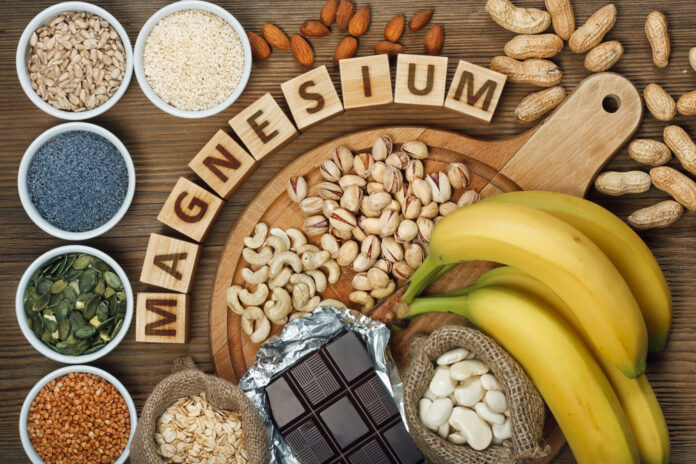Are you constantly feeling exhausted and experiencing chronic skin problems? If you’re looking to give yourself an extra boost of health and beauty, magnesium may be the answer you need. This miracle mineral can help you improve your overall health and beauty from the inside out. You’re about to learn why magnesium is so amazing and how it can be used for better skin and health.
Benefits of Magnesium for Skin Health

It is an essential mineral found primarily in plants, and plays a key role in maintaining healthy skin. It helps reduce common skin conditions such as wrinkles, inflammation and breakouts; keeps skin hydrated and elastic; and may also protect the skin from sun damage. To maximize its benefits, many people choose to use a magnesium body lotion, which can help deliver the mineral directly to the skin.
Magnesium helps boost collagen production for firmer, more youthful-looking skin. This mineral also supports the smooth functioning of our endocrine system, which helps regulate hormones associated with acne. Additionally, it promotes the body’s antioxidant activity to restore damaged tissues in the skin that can cause signs of aging like wrinkles and fine lines.
Increased intake has been linked to:
- Healthy sebum production
- Reduced pore size
- Reduced redness associated with facial inflammation like rosacea or eczema flare-ups by reducing sensitivity to environmental factors such as wind or temperature changes that can trigger facial irritation.
Overall, it stimulates cell metabolism while eradicating toxins within the cells to prevent clogged pores and excess oil accumulation – creating a healthier-looking complexion. With its multiple benefits on both tissue maintenance and cell regeneration, supplementing diets with proper amounts of this miracle mineral can help you get one step closer to a glowing complexion!
Benefits of Magnesium for Overall Health

This mineral is well known for its role in maintaining healthy bones and oral health, but it has other impressive benefits for overall health. This mineral is involved in hundreds of bodily functions, from producing ATP (adenosine triphosphate) which provides energy to the cells, to supporting healthy nerve and muscle function.
Studies have demonstrated that this mineral can also help to reduce stress, anxiety, and improve moods. It’s thought to be the reason why magnesium-rich Epsom salt baths are such a popular form of home therapy. It is involved in glucose metabolism and helps to regulate insulin secretion from the pancreas. As such, it can help people with Type 2 Diabetes maintain better blood sugar levels.
Additionally, it has been linked to improving heart health by reducing blood pressure and inflammation markers in the body as well as reducing blood platelet aggregation – all of which can help promote better circulation and prevent cardiovascular disease. Last but not least, this essential mineral is required for proper calcium absorption so it helps keep bones strong and teeth healthy too!
Sources of Magnesium
This is a critical mineral that’s essential for healthy skin, energy production and a range of body functions. Unfortunately, many people don’t get enough magnesium in their diet and could benefit from supplementing their diet with magnesium-rich foods.
Fortunately, there are a variety of natural sources of magnesium to choose from:
- Green leafy vegetables like spinach and kale
- Nuts and seeds such as almonds, cashews, pumpkin seeds and sunflower seeds
- Legumes including beans, lentils and chickpeas
- Avocados
- Bananas and figs
- Whole grains such as brown rice, quinoa or millet
- Firm tofu
- Dark chocolate (more than 70% cocoa solids)
Additional dietary sources of magnesium can also be found in dairy products such as yogurt or milk; however due to the presence of phosphate in these products the absorption rate may be lower. Supplements are also available for those looking for an easy way to get more magnesium into their diets but should only be taken after consulting with a doctor or registered nutritionist/dietitian first.
Possible Side Effects of Magnesium

Although magnesium is an essential mineral for optimum health, taking too much can lead to some uncomfortable side effects. People who take doses exceeding 350 mg of supplemental magnesium daily may experience diarrhea, bloating, and stomach cramps. Magnesium allergies are rare but possible; those who are sensitive to magnesium should take it with caution and discontinue use if any side effects appear.
When absorbed through the skin, such as with lotions that contain magnesium chloride or other salts like Epsom salt, it can cause strong concentrations that also produce gastrointestinal symptoms if too much is used. For example, taking baths utilizing 1-2 cups of dissolved Epsom salts many times per week can trigger adverse reactions.
Though it is an antioxidant nutrient which helps protect cells from damage by free radicals and prevent heart disease and lower blood pressure, those who take medication to control their blood pressure should monitor their use of supplemental magnesium carefully due to the risk of hypotension (low blood pressure). Additionally, supplementing with excess magnesium over several days or weeks may deplete calcium levels in the body. Therefore people on prolonged supplements should consider calcium/magnesium combination pills or check with a medical professional before continuing use of high doses for extended periods of time.
Conclusion
It has been associated with reduced inflammation, a key factor in many skin conditions including psoriasis and eczema; improved skin elasticity and regeneration from sun damage; and an overall decrease in the signs of aging. Furthermore, it has also highlighted that magnesium can help to regulate the body’s pH balance, improve sleep quality, reduce stress, and reduce anxiety levels.
As with any supplement, it is important to speak to your doctor or nutritionist before proceeding to supplement with magnesium if you have any health concerns. Aside from dietary sources like nuts & seeds, green leafy vegetables or dark chocolate, supplementing with magnesium may be necessary if you are unable to get sufficient amounts through diet alone. Magnesium comes in many forms – ranging from topical creams or gels to tablets and capsules internally taken – so make sure you discuss the most appropriate option for your needs with your nutritionist or healthcare practitioner.







